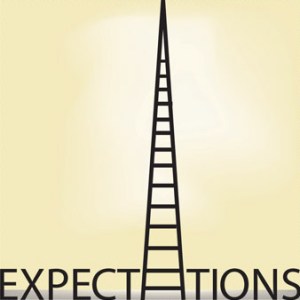This is the 99th #WILTW
I attended my inaugural TED event this week. Even if unwittingly you have probably seen a TED Talk.
click here if video doesn't play
TED runs under the slogan: “Ideas worth spreading” and is a non-profit company devoted to spreading ideas in the form of short talks by invited speakers. They franchise to local events which although not organised by TED adhere to their principles. The TEDx Leicester saloon entitled “Health of the Nation: Should we care” my first immersion into a live event.
The talks were different, both in content and style, but all encouraged the audience to think a little differently about a subject. The first, by a paediatric intensive care consultant who works at my trust, examined whether we care too much as a society. From his experience as an panellist on a benefits appeal committee Dr Nichani eloquently described how it is easy for systems and families to disempower the very individuals we aim to help. A colleague in my Emergency Department Dr. Pro Mukherjee then spoke on mindfulness and compassion and how it is easy to let our cups of knowledge ‘overflow’ rather than draining them to allow space to learn new things. Dr Sally Ruane made the case that the NHS is not a financial black-hole and is currently being underfunded to the detriment of patients.
The speakers were passionate and there was a lot of debate at the end, particularly around expectations of the public in relation to the care they should receive. I was struck that as an emergency clinician I spend far more time explaining than I do treating. This may be particular to paediatric emergency practice, where the majority of patients need minimal interventions, but I am sure it is a common theme in healthcare regardless of discipline.
Healthcare is not simple. While disease processes may have a clear cause and effect; the impact on an individual is rarely dichotomous. While I may see lots of children in a day with a viral illness, all of whom can be safely discharged home, each of their parents felt their child was unwell enough to warrant a medical review. I need to explain the reason for their symptoms, why I think they don’t need admission or treatment, what is likely to happen and what to do if things change. And this is for a ‘simple‘ interaction in the Emergency Department. Imagine the challenge for an intensive care consultant approaching a family whose child has a heart beat but is not showing signs of life. Or for the discussion about a child whose continued need for ventilation on a life support machine may be causing them harm and there seems no prospect of recovery.
Making the complex simple is something we have become accustomed to in the 21st Century. Our entire society is predicated on ease of access to information and services. The more challenging it is to do something, the less likely you are to do it. Social Media, with its implicit design to quickly spread new knowledge in a variety of formats, has amplified this conundrum. And a conundrum it is.
The public increasingly expect an online style health service and become frustrated when a budget and resource limited system can not compete with other on-demand services. This means potentially longer than expected waits, solutions which may involve no treatment and often a degree of uncertainty about outcome.
This problem I believe is also cursing the health profession itself. The current Junior Doctors strike in the UK is not a simple disagreement between an employer and an employee. Both sides have produced many sound bites but it is not just about pay, safety, working conditions, morale, increasing demand with reducing budgets or targeting the wrong professional group it encompasses all of these things. There is no tame solution to this wicked problem.

As more patients present to health care services I have less time per patient to explain information. At some point we will need to call time out on everything being reduced to 140 characters, 3-clicks or a 90s video. The real world is far more complex.
What have you learnt this week? #WILTW
You can now follow WILTW on Facebook by liking this page . Browse previous posts here or insert your e-mail address in the box on the right hand side to receive future posts.

So true. I think that the enthusiasm for simplification is epitomised in the rise of the healthcare petition. Complex
Public Health decisions such as GBS screening are reduced down to simplistic ideas “the cheap test that saves lives”.
Also find that taking the time to give (what I think is) a clear explanation can lead to confusion. There is only partial recall and the patient may re-present with a Chinese whisper style reporting of the consultation that makes your decision making seem bizarre.
Challenging times, but then, isn’t that part of the fun?!
Great post (as usual)!!
Worthg reading ‘Make It Stick’ (Brown et al, 2014) – book about evidence based education. Makes the point (among others) that making learning simple *reduces* its effectiveness. I think it is a good paradigm for complex systems – the counter-intuitive solution is probably right!